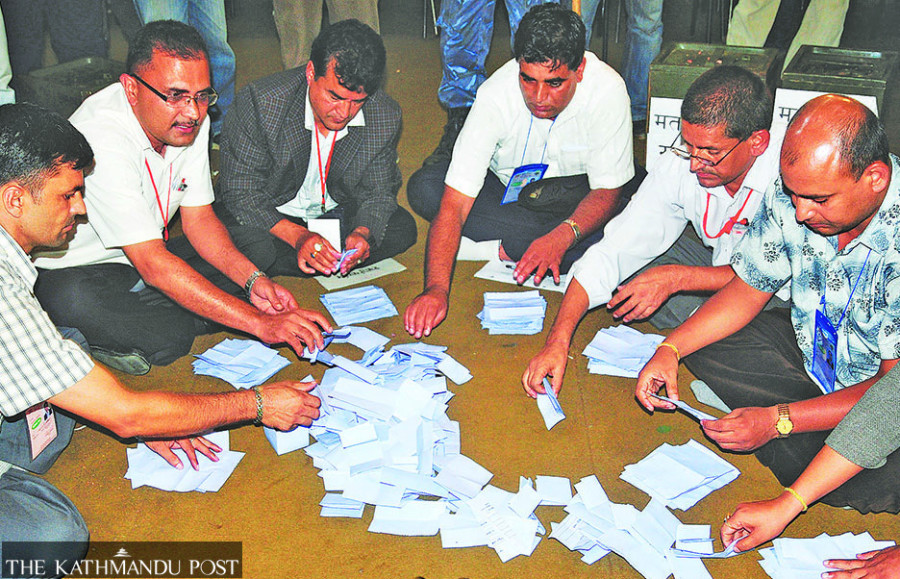Editorial
High-tech surveillance
Political leaders cannot be trusted to allow the elections to happen freely and fairly.
The Election Commission is now reported to be planning to institute a centralised system to monitor the ballot paper storage and vote counting process to ensure maximum security. It aims to use a Vote Counting Video Management System at the ballot storage and counting centres, and has directed local governments to make technological arrangements for the same. At first glance, there does not seem to be any problem in the Election Commission's wanting to strengthen its ballot counting process. “Booth capture”, in fact, remained a sinister tactic through which political parties tried to get favourable results in earlier elections. Add to that the minuscule power the commission has in reining in rogue political parties, and its desire to adopt technology to keep tabs on the vote counting process cannot be undermined.
In fact, the poll body has learnt its lesson from previous local elections, where, in a clear example of pre-planned disruption in case of an unfavourable outcome, cadres of the CPN (Maoist Centre) tore up ballot papers in Bharatpur on May 28, 2017, even as the counting process was nearing completion. While Devi Prasad Gyawali was leading the race with 733 votes until almost the end, Renu Dahal, the daughter of Maoist supremo Pushpa Kamal Dahal, won by 203 votes following the August 4 revoting in the disputed Ward 19. However, a technological revamp will just scratch the surface of the problem that needs to be solved through major structural reform. No matter how advanced the technology, it cannot solve the problem unless there is a sea change in the way we think about political participation and democracy.
The focus, therefore, should be on reforming the country’s political culture rather than bringing cosmetic, technological changes. The events of the past couple of years, when political parties remained at each other’s throats for the silliest of reasons, showed the extent of the noxiousness of Nepal’s political culture. While a democratically elected leader, KP Sharma Oli, demolished parliamentary democracy even as he pushed his party colleagues to the corner, his colleagues, in turn, found one sinister means after another to push him out of Baluwatar even if that meant tearing the party apart. Even as the country prepares to conduct local elections in around two months from now, the party leaders are pugnacious bunch, with “chunav ma dekhaidiunla”, or “we’ll show you in the elections” being their most abused catchphrase of their diatribe.
The current lot of combative political leaders and their cadres, therefore, cannot be trusted to allow the elections to happen freely and fairly. The Election Commission, which doesn’t have much teeth when it comes to whipping political parties into following the established norms of democratic electoral politics, cannot be faulted for wanting to padlock its treasures beforehand rather than blame the thief afterwards. For, no lock is unbreakable if the thief is insistent on breaking it. Rather, the focus should be on creating conditions that preclude the production of thieves altogether. That the poll body is planning to cause the draining of a huge amount of resources on a centralised surveillance system to ensure the security of poll ballots should shame political leaders enough to come together and promise before the people that they would not do anything untoward in the elections. That will save them some shame, and the state coffers, a lot of money and human resources.




 18.12°C Kathmandu
18.12°C Kathmandu














